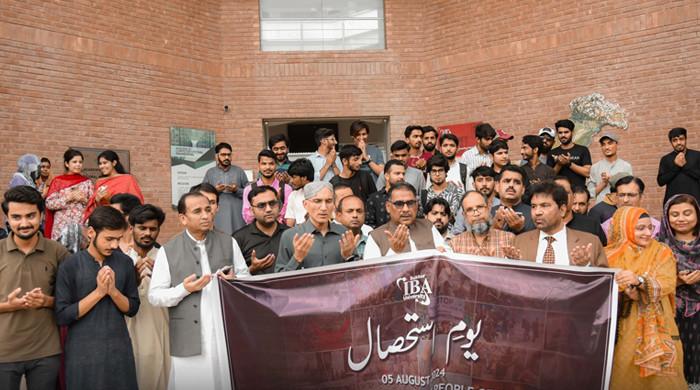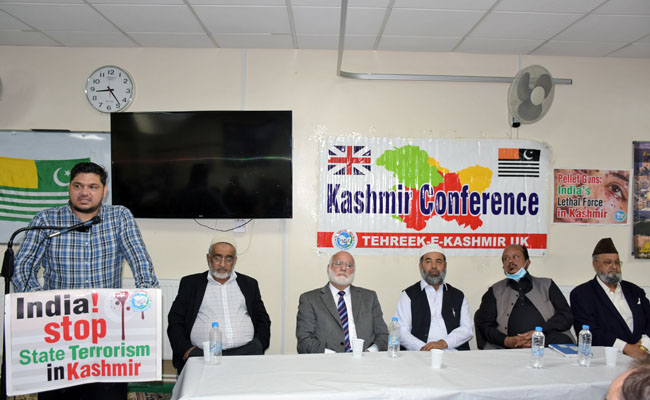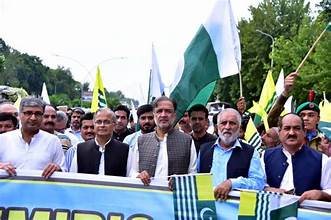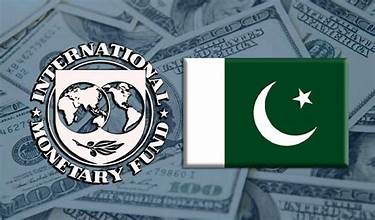August 5 marks a significant and somber day in the history of the Kashmir conflict — a day now commemorated in Pakistan and by Kashmiri communities worldwide as Youm-e-Istehsal (Day of Exploitation). This day recalls the unilateral revocation of Article 370 and 35A of the Indian Constitution by the Indian government in 2019, which stripped Indian Illegally Occupied Jammu and Kashmir (IIOJK) of its semi-autonomous status. Since then, Youm-e-Istehsal has been observed annually to reaffirm Pakistan’s moral, political, and diplomatic support for the Kashmiri people and their right to self-determination.
Background: The Unilateral Move of August 5, 2019
On August 5, 2019, the Indian government led by Prime Minister Narendra Modi made a controversial and unilateral decision to abrogate Article 370, which granted special status to Jammu and Kashmir. This move effectively dissolved the region’s autonomy, split it into two union territories — Jammu & Kashmir and Ladakh — and placed it under direct federal control. This drastic change was made without the consent of the Kashmiri people or their representatives.
The abrogation was followed by a complete lockdown, communication blackout, and massive troop deployment across the region. Thousands of political leaders, activists, and civilians were detained. Human rights organizations, including Amnesty International and Human Rights Watch, raised serious concerns over civil liberties, freedom of expression, and the humanitarian impact on the population.
Observing Youm-e-Istehsal in Pakistan
Every year since the abrogation, Pakistan observes August 5 as Youm-e-Istehsal to condemn India’s actions and to show unwavering solidarity with the oppressed people of Kashmir. On this day, various activities and events are organized nationwide:
- Rallies and Protest Marches: Citizens, political leaders, students, and civil society members participate in rallies and protest walks to highlight Indian aggression and human rights abuses in Kashmir. These events are held in major cities including Islamabad, Lahore, Karachi, and Peshawar.
- Moment of Silence: A symbolic moment of silence is observed to honor the Kashmiri martyrs and victims of brutality.
- Media Campaigns: Public and private media channels run special programs, documentaries, and interviews to raise awareness about the situation in Kashmir.
- Posters and Banners: Streets are lined with banners and posters displaying slogans like “Kashmir Banay Ga Pakistan” and “Stop Human Rights Violations in Kashmir.”
- Social Media Movement: Hashtags such as #YoumEIstehsal, #IStandWithKashmir, and #KashmirUnderSiege trend on social media platforms as Pakistanis around the world voice their support.

Messages from the Leadership
On this day, the President, Prime Minister, Foreign Minister, and other government officials issue strong statements condemning Indian actions and reaffirming Pakistan’s commitment to supporting the Kashmir cause. They call upon the international community to play its role in pressuring India to comply with United Nations resolutions and respect the rights of Kashmiris.
In his address, Prime Minister Shehbaz Sharif reiterated that Kashmir is an unresolved dispute on the UN agenda and that durable peace in South Asia cannot be achieved without its just resolution. He emphasized Pakistan’s unflinching support for Kashmiris until they are granted their legitimate right to self-determination.
International Reactions and Diplomatic Outreach
Pakistan’s embassies and missions abroad also play an active role on Youm-e-Istehsal. Events are organized at diplomatic posts to educate the global audience about the Kashmir issue. Documentaries, photo exhibitions, and panel discussions are held to shed light on the deteriorating human rights situation in IIOJK.
Pakistani diplomats use this occasion to engage with international media and policymakers, advocating for international intervention to stop demographic changes and suppression of dissent in Kashmir.
Humanitarian Concerns in IIOJK

Despite the passage of six years, the situation in Indian Illegally Occupied Jammu and Kashmir remains grim. Reports of arbitrary detentions, media censorship, internet shutdowns, and curbs on religious and cultural freedoms continue to surface. Human rights activists and journalists working in the region face intimidation and harassment.
Moreover, India’s attempts to alter the demographic composition of the region by introducing new domicile laws have added to concerns. These measures are widely viewed as efforts to marginalize the indigenous Muslim population of Kashmir.
Conclusion: The Struggle Continues
Youm-e-Istehsal is more than just a day of remembrance — it is a reminder that the struggle for justice, freedom, and dignity for the Kashmiri people is far from over. It calls upon the global community to act, the media to report truthfully, and the people to stand united against oppression.
The observance of this day not only renews Pakistan’s commitment to the Kashmir cause but also strengthens the resolve of Kashmiris who continue to face hardship with courage and resilience. As the world watches, it is imperative that the voice of the voiceless be heard and that peace and justice be restored in the region.



